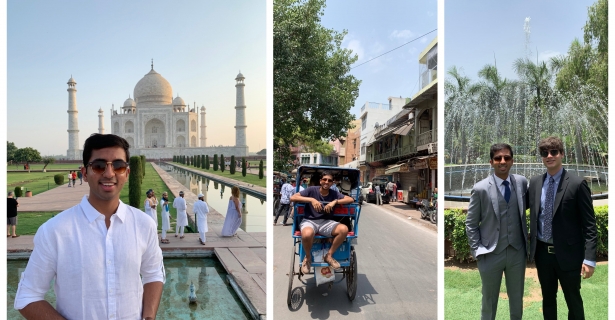Ten days into the ALLIES Joint Research Project (JRP) in India, it is hard to see how India's vast sociopolitical discourse is not explored further (at least in western research literature). The first ten days of our trip have come with immense learning. From meetings with key officials in the US Embassy to roundtables at some of India's biggest think-tanks, our team has had the opportunity to spend an extraordinary amount of time around some of India's best policy minds. I will use this blogpost to offer what I have found to be some interesting, unexpected snippets of the wealth of information Jake and I have encountered thus far.
Jake and I came into this trip with a strong focus on the domestic and regional political situation in India. The rise of Prime Minister Modi and the BJP, considered a Hindu nationalist party by many, has brought a dramatic shift in India's approach to foreign policy and international engagement, particularly with regard to Pakistan. With this in mind, much of our initial scaffolding for our research was focused on Pakistan and the effects of the Pulwama crisis on the long-term relationship between India and its rival state.
Interestingly, our conversations here have revealed that while Pakistan is seen as a chronic and dangerous foreign policy challenge to most Indian policymakers, it is China's dramatic rise that is seen as a greater threat to Indian supremacy, particularly in the Indo-Pacific region. The Belt+Road Initiative and its constituent economic investment programs in countries like Sri Lanka and Pakistan (including the oft-cited CPEC) seem to be a cause for concern - a point that has manifested itself in PM Modi's foreign policy directly after his re-election.
It is no coincidence that his first foreign visits were to the Maldives and Sri Lanka (notable recipients of Chinese economic investment). While this shift in discourse was definitely unexpected, it is one that Jake and I are taking in stride and incorporating into our research.
But China is not the only hot topic in Indian foreign policy discourse. The American relationship with India is another popular discussion, particularly when complicators like Russia and Pakistan are added. While most discussions have included the US as an 'important global partner' in one way or another, it is clear that the Indian policymakers have at least some apprehension in establishing deeper ties with the United States. Jake and I are looking forward to exploring the nuances of this relationship.
Outside the realm of intense foreign policy discussion, a few days ago our research team was able to take a break from our meetings and drive to Agra to see the famous Taj Mahal. Little of what I say in this post about that building will do it justice but suffice it to say that seeing the mausoleum at sunrise was an experience I will remember for a lifetime.
I look forward to writing here again in the back end of our trip.

